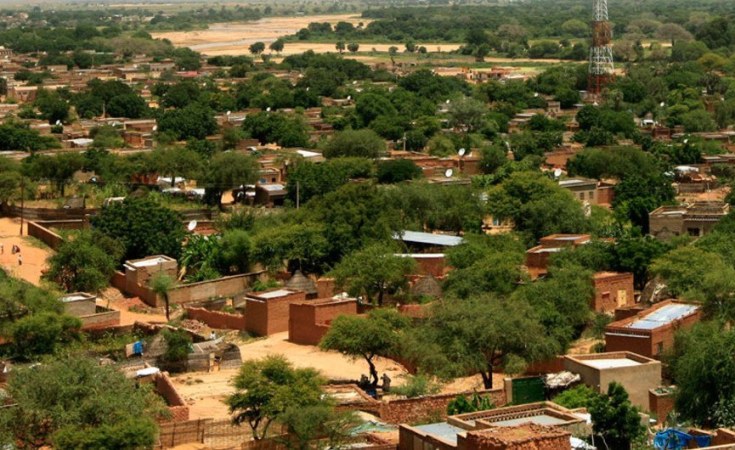London — The UK sanctioned six companies they say belong to the leaders of the Sudanese Armed Forces (SAF) and the paramilitary Rapid Support Forces (RSF) on Wednesday. In a statement by the British Foreign Secretary James Cleverly following the announced sanctions, he said this was an effort to directly target "those whose actions have destroyed the lives of millions".
Secretary James Cleverly's sanctions on the six commercial entities, with each of the respective parties currently in conflict (SAF-RSF), having "three associated businesses targeted", according to the Foreign Office press communique.
The companies associated with the RSF are Al-Junaid, GSK Advance Company Ltd, and Tradive General Trading co. Al Junaid is alleged to have provided at least "tens of millions in financial backing" to the RSF. GSK Advance Company Ltd are reportedly a "key front company" owned by the RSF, providing a means for the paramilitary group led by Lt Gen Mohamed 'Hemedti' Dagalo to "purchase materiel". The last company sanctioned, Tradive General Trading co, are supplying the RSF with "funds and materiel such as vehicles retrofitted with machine guns for the RSF to patrol the streets".
According to the UK's Foreign Office, the SAF-associated sanctioned companies are Defense Industries Systems (DIS), Sudan Master Technology, and Zadna International Company for Investment Limited. DIS is the SAF umbrella conglomerate, made up of over "200 companies", and provides over $2 billion per annum for the Commander-in-Chief and President of the Sovereignty Council Lt Gen Abdelfattah El Burhan. Sudan Master Technology, which is reportedly said to have ties to DIS, are responsible for "the sale of arms" and is also their "manufacturing arm", supplying them funds and equipment. Zadna International Company for Investment Limited is also an alleged subsidiary of the DIS and is one of the top three "major earners" which fuels the war.
Failed peace talks in Jeddah, headed by the joint facilitators of Saudi Arabia and the US, led to multiple ceasefires being broken, as well as the SAF withdrawing from the negotiating table for a period of time.
The UK's late decision and relative inaction till now arguably came as result to see if the US sanctions and Jeddah talks would lead to the fruition of a lasting ceasefire. However, given the resent escalation of clashes taking on an ethnic dimension, the conflict between the warring parties seems to show no signs of slowing down.
Last week, United Nations' Secretary-General António Guterres was "appalled" and condemned an airstrike which killed at least 37 in the Omdurman neighbourhood of Dar El Salaam. The UN chief also warned of an impending civil war in Sudan "potentially destabilising the entire region".
APPG experts
A committee meeting headed by the All-Party Parliamentary Groups (APPG) for Sudan and South Sudan convened in the Houses of Parliament on Wednesday, to discuss the causal roots and possible solutions for the current conflict. The meeting began with a moment's silence that was initiated by the APPG's Chair and Conservative Party MP Rt Hon Vicky Ford.
As well as Ford, two other APPG representatives were also in attendance, the Earl of Sandwich, and the Lord Bishop of Leeds. The rest of the panel consisted of experts on Sudan and transitional justice such as Kholood Khair, Dr Suliman Baldo, Alex de Waal, Denise Spirmont-Vasques, and Dr Anita Fererra.
Vicky Ford posed the question to the panel if the six companies selected for sanctioning "Were the right ones?". Dr Suliman Baldo replied to her question, stating that these sanctions were not an efficient recourse, as "subsidiaries, suppliers, and buyers" are the actors that need to be targeted. He added that the nature of these businesses is "too elusive" and are "often shell-corporations keeping assets overseas, which can exchange hands quickly".
The Q&A portion of the discussion was highly impassioned, with vigorous testimonies from Sudanese people in the audience. A woman who had just arrived from Sudan to the UK, stated that she "just came from hell". She brought out her phone and showed the panel a picture of a bullet, which she states, "narrowly missed her young son and his friend". The woman called on the international community to "stop pampering El Burhan".
Another meeting took place later on the same day in the Houses of Parliament, this time, discussing the inaction from the British government to safeguard Sudanese asylum seekers. The meeting was chaired by the Sudanese Legal Network and the Society for Black Lawyers. The meeting heard multiple accounts detailing the bureaucratic hurdles Sudanese asylum seekers were subjected to.
A testimony from a recent Sudanese asylum seeker living in Bristol highlighted what he referred to as "hypocrisy", due to "every other country being offered help apart from Sudan". He adds that his treatment so far in the UK was "undignified", and questioned whether the lack of help for Sudanese was because of racism.
Sudanese diaspora activist Yasmeen Abdel-Magied told the meeting room that the importance of Sudanese people in the UK should not be understated, adding that "the first amongst the UK doctors to die from the Covid-19 epidemic were Sudanese".
The meeting called on the British government to introduce a settlement visa for Sudanese asylum seekers, as well as introducing a family visa, so that the UK's diaspora can take care of their families.


